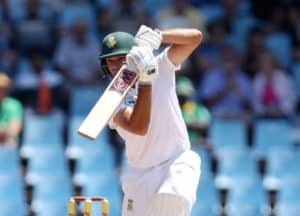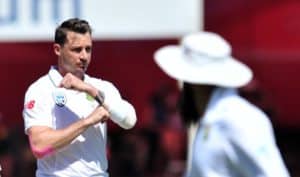Ashwell Prince offered insight into Kyle Verreynne’s mental constitution that reinforced the sense that the kid is special and has to be a three-format player for the Proteas, writes RYAN VREDE.
Prince has spoken about Verreynne often in the past, but not with the specificity he did when appraising him in an interview with Netwerk24 on Thursday.
Prince said the 24-year-old was among South Africa’s top batsmen. ‘I don’t just mean young batsmen, I mean all batsmen, including those that played in the recent Test series against Pakistan,’ he said, driving home his point.
Prince later revealed the foundation of what is a bold assertion – Verreynne’s mental constitution. ‘He’ll make runs wherever he’s chosen to play for the Proteas because his biggest strength is his mentality and his can-do attitude, regardless of the situation,’ he said, revealing a dimension of Verreynne’s weaponry that is more important than his immense talent.
Some would argue that it is self-evident that Verreynne is mentally strong, pointing to his outstanding domestic record as evidence of that. This, in my experience, is very rarely the case.
Talent carries many young players in the formative stages of their professional career. This is especially true for those who’ve dominated at every stage of their junior amateur career (Verreynne didn’t). Yet talent often proves to be an inadequate remedy when these young players hit a period of poor form. It is at this stage that those who’ve experienced struggles in their formative years, and learn and apply the lessons thereof, who separate themselves from the talented.
This is Verreynne’s edge. Nothing he has professionally has come easily. Even now, his international career continues to be stifled by the national selectors’ inexplicable reluctance to make him a three-format player.
We could have a lengthy debate about under what set of circumstances, especially in their formative years, great players are moulded. There is no debate, though, that you can’t teach players how they respond to setbacks, which former England batsman, Ed Smith, describes in his book ‘What sport tells us about life’ as something great players experience in a detached manner – a mere blip on their journey radar to even greater feats. This is critical to their consistency.
Smith, writing about iconic footballer Zinedine Zidane’s playing career, describes his mental approach in a way that resonates when you think about Verreynne. ‘He has a completely natural type of focus – there is no posturing, attention-seeking or affected team-spiritedness. He is also shown to possess a paired-down control of emotional stimulus. “Focus” and “concentrate” are the two commonest sporting clichés. But rarely does anyone add that you cannot focus and concentrate on everything. The art is what you leave out.’
I’ve spent a career watching talented young players crash and burn because they did not have the mentality Prince attributes to Verreynne. I assign massive significance to Prince’s appraisal because that is exactly what defined him as an international player.
This is not to say Prince wasn’t talented, he was. However, talent alone would have earned him 19 international caps. The combination of talent and temperament got him 119. Eleven Test hundreds and an average touching 42, earned via a multitude innings that demanded Prince accessed inspirational depths of mental strength, makes him an expert on this subject.
When he says of Verreynne, ‘His biggest strength is his mind and his character. What he offers from a technical perspective is that he keeps things simple and uncomplicated’, it means something. Prince is exposing a dimension of Verreynne’s character that mimics some of the game’s greats.
Verreynne is four matches into his international career (averages just over 40 with two half centuries). He may yet be exposed as having inadequate temperament to succeed on the international stage. We’d only know if we pick him consistently.
I prefer to have an optimistic outlook informed by Prince’s weighty praise. If Verreynne does indeed possess the rare combination of talent and temperament in equal measure, the national selectors must invest in him.





